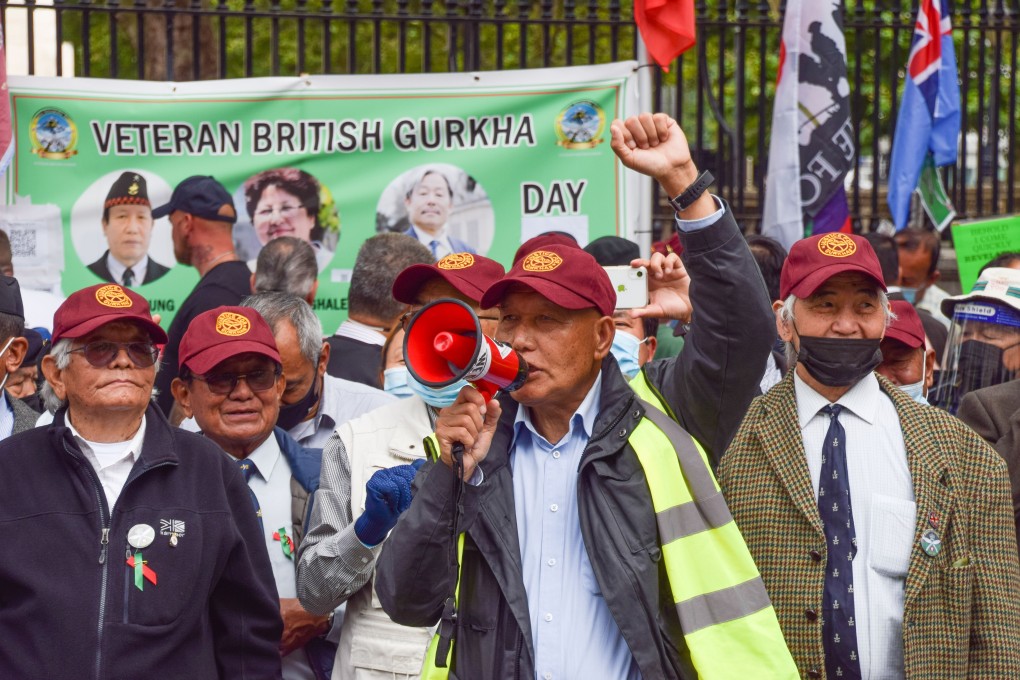Advertisement
Opinion | Gurkhas fought and died for Britain. They should not have to beg for their pensions
- Since 1815, the Gurkhas have fought in every war involving Britain, yet they are still fighting for equal rights
- The Gurkhas have been mistreated and taken for granted by both British and Nepalese governments
Reading Time:3 minutes
Why you can trust SCMP
5

After Britain’s Ministry of Defence failed to address their long-term grievances, three British Gurkhas – Gyanraj Rai, Dhan Gurung and Gurkha widow Pushpa Rana Ghale – have been camped outside 10 Downing Street since August 7, vowing to continue a hunger strike even if it costs them their lives.
Advertisement
Police have sought to evict them but their campaign to ensure equal military pensions for former Gurkha soldiers, originally from Nepal, has begun to attract support from the British public.
Gurkhas have been fighting for equality for the past 30 years. Despite being renowned for their bravery and impeccable soldiery, the Gurkhas have been mistreated and taken for granted by both British and Nepalese governments.
Despite not being a member country of the Allied forces, Nepal sent more 200,000 Gurkhas to World War I, fighting throughout Europe, the Middle East and Africa. One in 10 Gurkhas did not return. Similarly, in World War II, more than 250,000 Gurkhas went to fight for the British. More than 33,000 of them died.
Since 1815, Gurkhas have fought in every war involving Britain, yet they are still fighting for equal rights.

Advertisement
